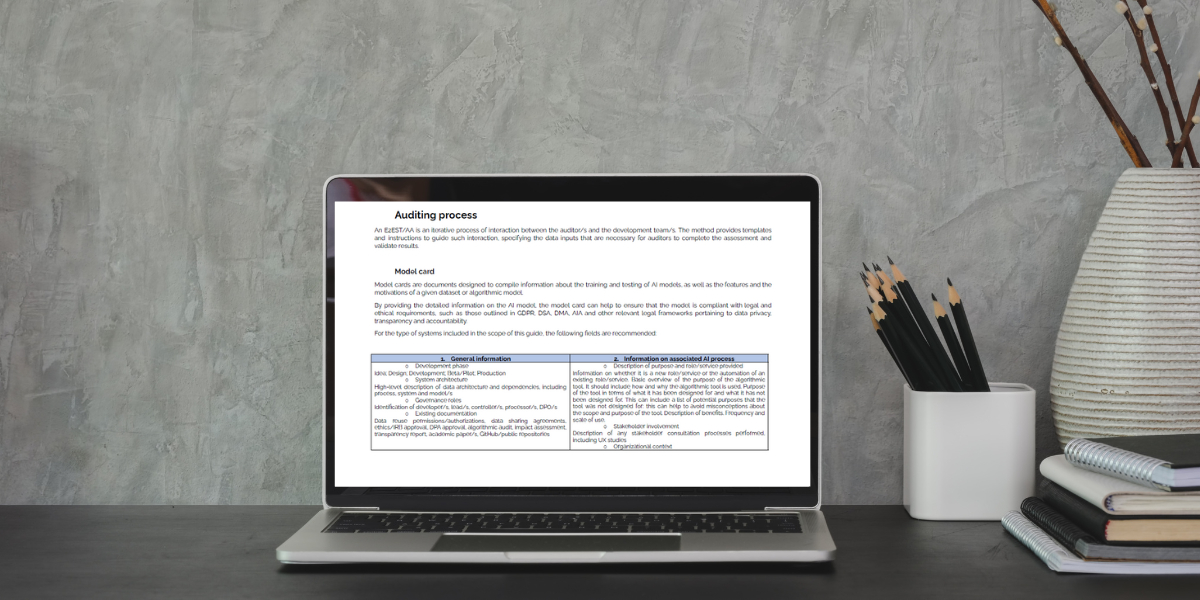AÑO
2023
CATEGORÍA
Comunidad
OBJETIVOS
Igualdad de género, Trabajo decente y crecimiento económico, Industria, innovación e infraestructura, Reducción de las desigualdades, Paz, justicia e instituciones sólidas
PAL. CLAVE
artificial intelligence, algorithm, auditing, bias, responsible AI
PAÍS
Spain
CRÉDITOS
Gemma Galdón Clavell
LINK
https://eticas.tech/
Eticas Algorithmic Auditing Methodology
A novel end-to-end socio-technical algorithmic auditing methodology, to detect risks and bias in AI.
How does it work?
Our auditing methodology traces back the rules that guide systems, calculates disparate impact and bias on specific communities, as well as measures accuracy in operative settings. Our methods include data scraping, data crowdsourcing, sock-puppeting, qualitative interviews and/or literature review, assessing compliance with the legal framework, model card drafting and data collection (data scraping, crowdsourcing etc.), system mapping, analyzing/testing for biases. Once the data is extracted, we analyze the system and its outcomes in pre-processing, in-processing and post-processing to identify where issues emerge and how to best expose and tackle them. Our methodology is subject to change and improvement as we continue our auditing work.
Why is it needed?
Algorithmic audits are the core of what we do, and we believe they are key to create a safe digital space where privacy and human rights are upholded. Since algorithms are increasingly being used to make important decisions such as hiring, lending, and criminal justice, it is crucial that these AI systems are fair and unbiased. Algorithms are not infallible, they can be vulnerable to attacks such as hacking or manipulation, they can be difficult to understand, and they are subject to regulations that require them to ensure the fairness of the algorithms they use. Therefore audits are needed because they are essential to ensuring that Artificial Intelligence is fair, accurate, secure, transparent, and compliant with regulatory requirements. Our auditing methodology is open to show how AI audits work, and to raise awareness about how algorithms affect our daily lives.
How does it improve life?
Algorithmic auditing can improve life in many ways, including:
· Fairness and justice: making sure algorithms used in important decision-making processes, such as criminal justice and hiring, are fair and unbiased. This can help reduce discrimination and promote equal opportunities.
· Accuracy and efficiency: ensuring algorithms are functioning as intended, and can identify any errors that may be impacting the accuracy of the algorithm.
· Accountability: providing transparency into how algorithms make decisions. This can help build trust with the public, especially when algorithms are used in sensitive areas such as healthcare and finance.
· Improved quality of life: algorithms are being used in many areas of life, from healthcare to transportation. Audits can help to get better algorithmic outcomes, which would result in a higher quality of life for users.
· Compliance with regulations: helping organizations comply with regulations can improve their reputation and reduce legal risks.





